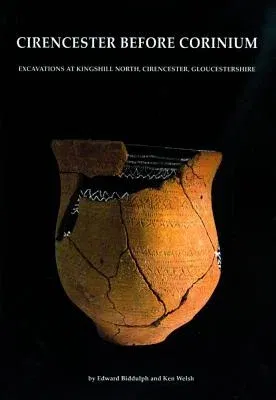Edward Biddulph
(Author)Cirencester Before Corinium: Excavations at Kingshill North, Cirencester, GloucestershirePaperback, 31 August 2011

Qty
1
Turbo
Ships in 2 - 3 days
In Stock
Free Delivery
Cash on Delivery
15 Days
Free Returns
Secure Checkout

Part of Series
Thames Valley Landscapes Monograph
Print Length
132 pages
Language
English
Publisher
Oxford Archaeological Unit
Date Published
31 Aug 2011
ISBN-10
190590522X
ISBN-13
9781905905225
Description
Product Details
Authors:
Book Format:
Paperback
Country of Origin:
GB
Date Published:
31 August 2011
Dimensions:
29.46 x
20.83 x
1.02 cm
ISBN-10:
190590522X
ISBN-13:
9781905905225
Language:
English
Pages:
132
Publisher:
Weight:
521.63 gm